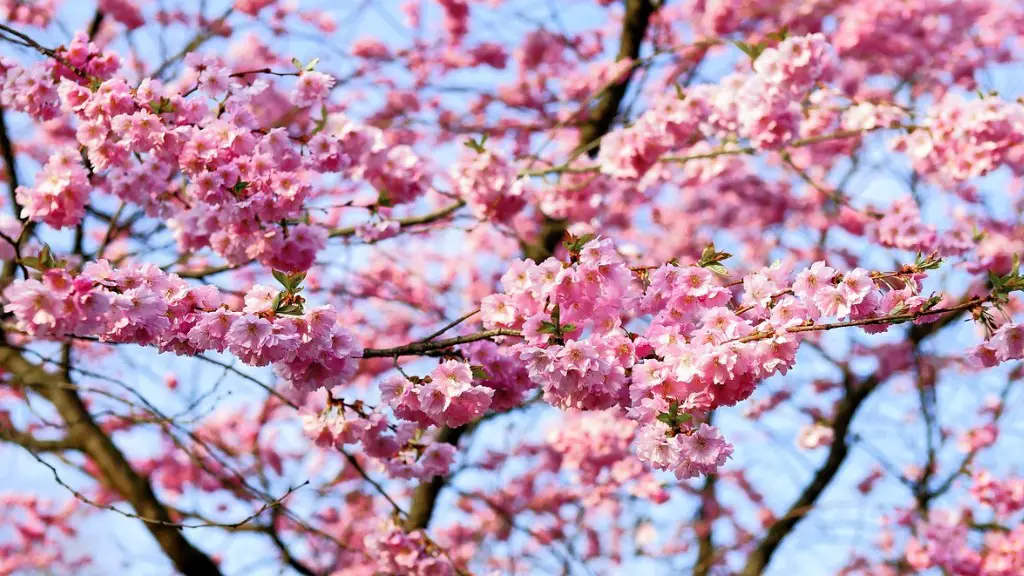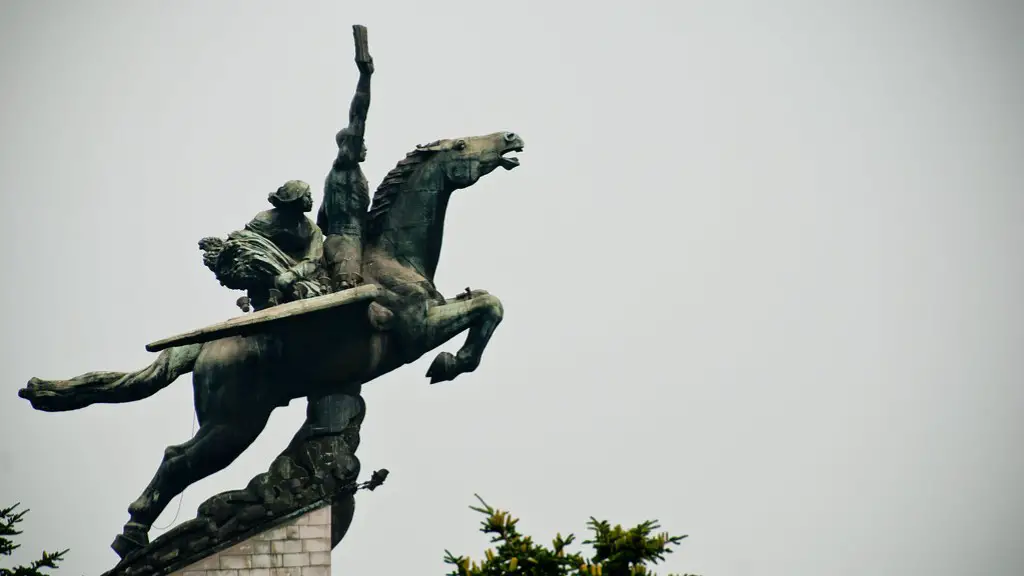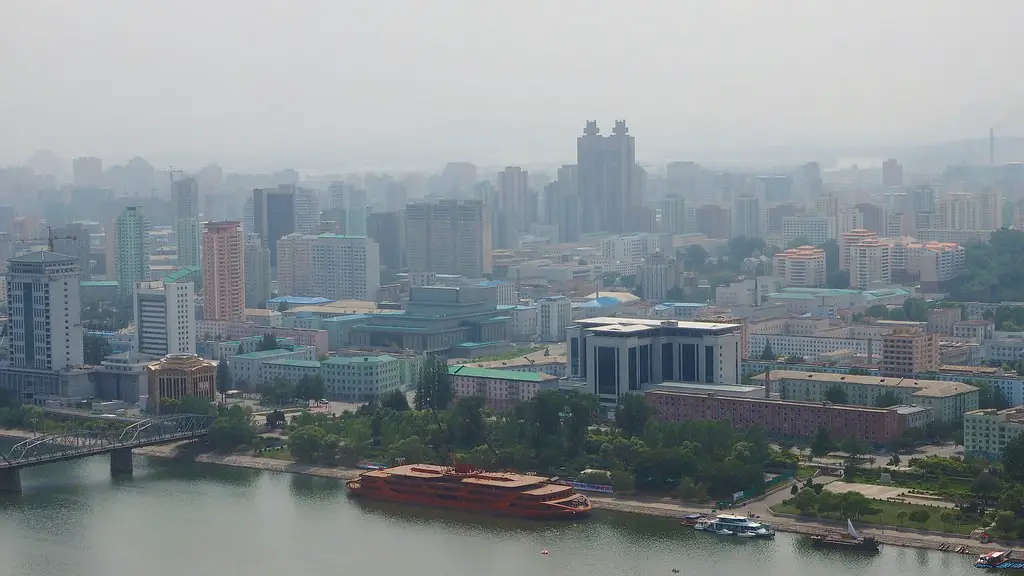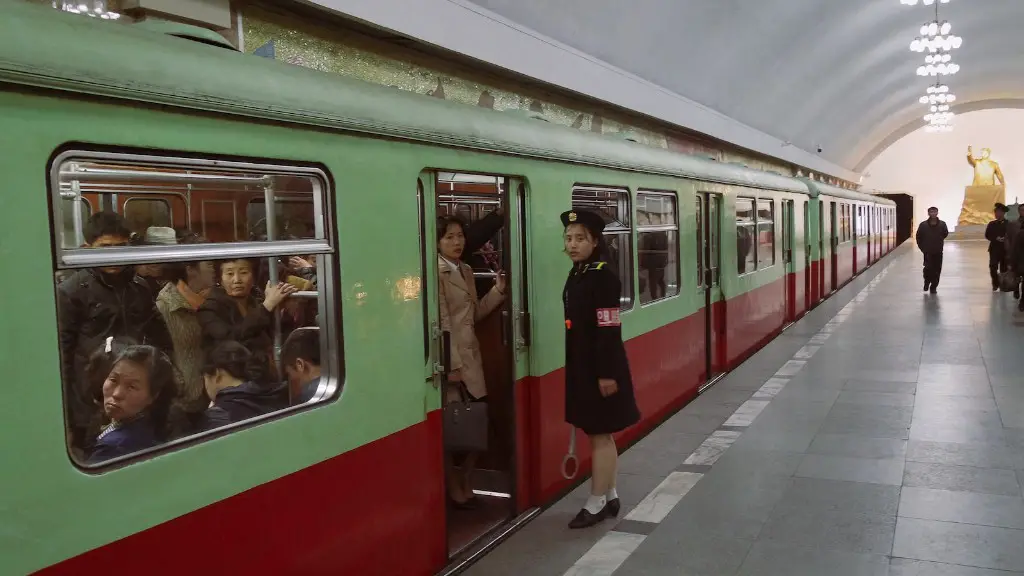What is life like for the people of North Korea? As a nation that is shrouded in secrecy and closely guarded by its government, stories about the lives of its citizens often lack credibility. But the unique way in which the country operates means that it is very difficult for outsiders to get any real insight into how people living there really feel. In this article, we will explore the North Korean situation to determine the truth: are the citizens of North Korea happy?
The status of North Koreans is not an easy thing to measure. Due to the restrictive nature of their leadership and government, it is difficult to get accurate data on the nation’s gross domestic product, or on even the most basic human needs such as food and education. The only way to get an idea about the lives of citizens is to study and look at first-hand accounts from former North Koreans, as well as reports coming from organisations and experts in the region.
There is no denying that North Koreans live in a difficult, oppressive society. The government strictly controls all aspects of life, from what citizens can watch on television to where they can travel. This means that basic freedoms are limited and human rights are violated on a regular basis. In addition, the country’s economic situation is miserable, with an extremely low standard of living and high levels of poverty.
Despite these hardships, however, it is difficult to deny that North Koreans are, in some ways, content. The citizens of the country, especially those living in rural areas, have a strong sense of patriotism and loyalty to their leaders. They have been raised to believe that the country’s system of government is the best possible, and this gives them a strong sense of purpose and identity. In many ways, they have been inducted into the North Korean cult of personality, and this seems to provide them some measure of happiness.
Ultimately, it is impossible to answer the question of whether or not the citizens of North Korea are happy. Most outsiders do not have access to the country, as it is highly isolated and guarded against outside influence. Therefore, it is difficult to get any real insight into the true state of the nation’s citizens, or to make a definitive judgement about their overall level of satisfaction. It is clear, however, that life for the people of North Korea is not the same as life for citizens of other, more developed nations.
Culture and Lifestyle
The culture and lifestyle of North Koreans is unlike anything seen in other countries. It is heavily shaped by the strictures of its government, and by its constant surveillance and propaganda campaigns. Citizens of North Korea are expected to conform to the ideology and values of their leader and to comply with the rules set out by the state. This means that all public behaviour, including dress and speech, are carefully monitored, and those who do not adhere to these standards are often punished.
Many North Koreans also live in an extremely isolated fashion, with limited access to the outside world. This means that the popular culture and lifestyles of other countries are largely unknown to them. For example, it is widely believed that North Koreans are unaware of many technological advancements and innovations, such as the internet and modern forms of communication.
In spite of this, North Koreans can still experience some forms of enjoyment. There is a thriving music and entertainment industry within the country, and the state sponsors and encourages traditional sports and competitions. Citizens also enjoy their local food, which can be surprisingly good, despite the restricted ingredients available.
At the end of the day, it is impossible to measure the overall happiness levels of the citizens of North Korea. However, it is clear that life in this secretive nation is very different from other countries, and that its citizens face a number of challenges and restrictions that may limit their ability to achieve a high level of happiness.
Political Situation
The political situation in North Korea is one of the biggest factors in determining the happiness of its citizens. The ruling regime is a totalitarian dictatorship that restricts free speech and basic human rights. Citizens are constantly being watched and monitored by the government, and those who are found to be acting or speaking out against the regime are severely punished.
The government also practices a policy of cultural control, restricting the types of books, films, and other forms of literature that citizens are allowed to access. This has led to a state of ignorance amongst the population, as many North Koreans are unaware of the world beyond their own nation. This further limits their access to an outside perspective that could inform their understanding of the world.
Lastly, the economic situation in North Korea is dismal. The country is very poor, and its citizens have limited access to food, education, and other basic necessities. This affects their quality of life and likely limits their overall level of happiness.
Despite these difficulties, however, it is difficult to judge just how unhappy citizens of North Korea really are. The country’s heavily guarded borders prevent any kind of external access, and its government does not allow for the publication of reliable statistics regarding its citizens’ lives. We can make an educated guess, however, that the citizens of North Korea do not experience a level of happiness that is comparable to those of other countries.
Conclusion
In conclusion, it is impossible to definitively answer the question of whether or not the citizens of North Korea are happy. However, it is clear that life in North Korea is extremely difficult and restrictive, and this undoubtedly affects the happiness of its citizens. The government’s policies of cultural control, monitoring and surveillance, and economic hardship all limit the freedoms of its citizens and prevent them from achieving a high level of general happiness. It is also clear that North Koreans have been indoctrinated into a cult of personality that gives them an artificial sense of purpose and identity, making it difficult to accurately judge their overall happiness levels. At the end of the day, it is impossible to say for sure whether or not the citizens of North Korea are content; however, it certainly does not appear that they are.



